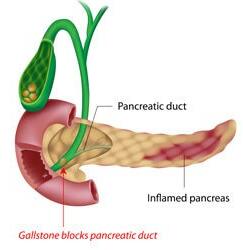Acute Pancreatitis (AP)

Pancreatitis is inflammation of the pancreas. The pancreas is a large gland behind the stomach and close to the duodenum—the first part of the small intestine. There are two main types, acute pancreatitis and chronic pancreatitis. In acute pancreatitis a fever may occur and symptoms typically resolve in a few days. In chronic pancreatitis weight loss, fatty stool, and diarrhea may occur. Complications may include infection, bleeding, diabetes mellitus, or problems with other organs. The most common causes of acute pancreatitis are gallstones and heavy alcohol use. Other causes include direct trauma, certain medications, infections such as mumps, and tumors among others. Chronic pancreatitis may develop as a result of acute pancreatitis.
Organism species: Mus musculus (Mouse)
- Disease model DSI555Mu01 Mouse Model for Acute Pancreatitis (AP) In Stock
- Customized Service n/a Tissue of Acute Pancreatitis (AP) (If Necessary) Tissue Customized Service Offer
- Customized Service n/a Serums of Acute Pancreatitis (AP) (If Necessary) Serums Customized Service Offer
Organism species: Rattus norvegicus (Rat)
- Disease model DSI555Ra01 Rat Model for Acute Pancreatitis (AP) In Stock
- Customized Service n/a Tissue of Acute Pancreatitis (AP) (If Necessary) Tissue Customized Service Offer
- Customized Service n/a Serums of Acute Pancreatitis (AP) (If Necessary) Serums Customized Service Offer
Organism species: Cavia (Guinea pig )
- Disease model DSI555Gu01 Cavia Model for Acute Pancreatitis (AP) In Stock
- Customized Service n/a Tissue of Acute Pancreatitis (AP) (If Necessary) Tissue Customized Service Offer
- Customized Service n/a Serums of Acute Pancreatitis (AP) (If Necessary) Serums Customized Service Offer
Organism species: Oryctolagus cuniculus (Rabbit)
- Disease model DSI555Rb01 Rabbit Model for Acute Pancreatitis (AP) In Stock
- Customized Service n/a Tissue of Acute Pancreatitis (AP) (If Necessary) Tissue Customized Service Offer
- Customized Service n/a Serums of Acute Pancreatitis (AP) (If Necessary) Serums Customized Service Offer
Organism species: Canis familiaris; Canine (Dog)
- Disease model DSI555Ca01 Canine Model for Acute Pancreatitis (AP) In Stock
- Customized Service n/a Tissue of Acute Pancreatitis (AP) (If Necessary) Tissue Customized Service Offer
- Customized Service n/a Serums of Acute Pancreatitis (AP) (If Necessary) Serums Customized Service Offer


